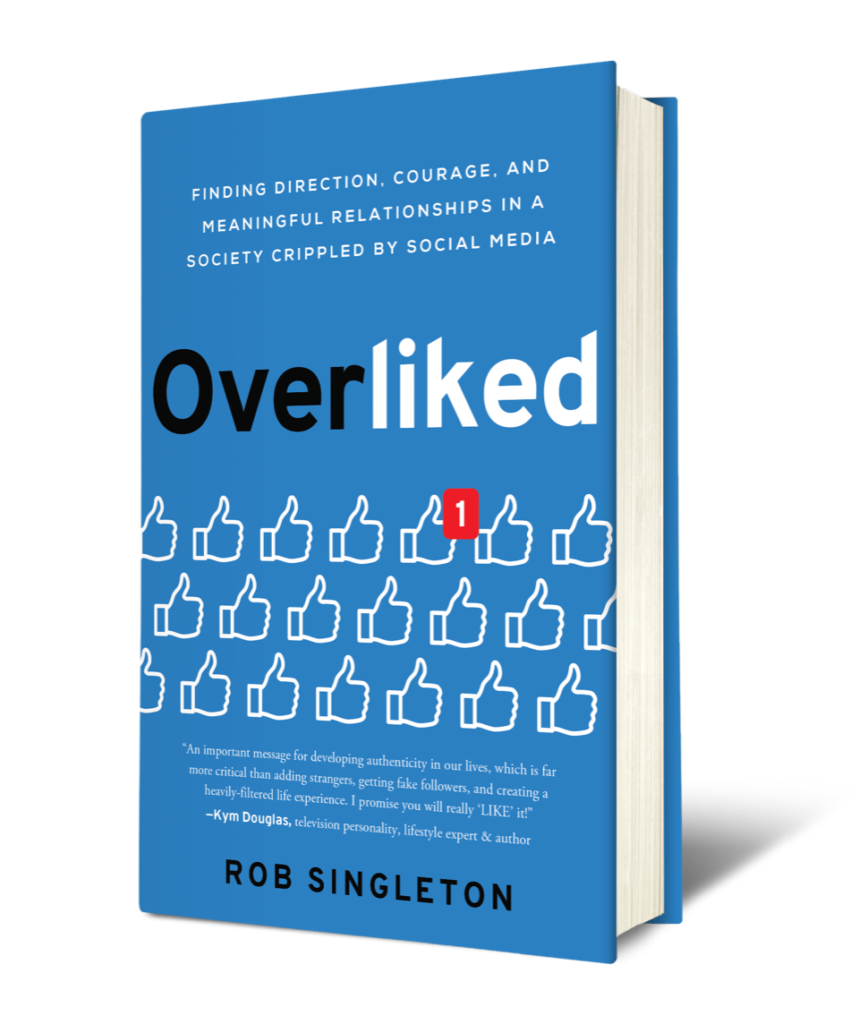Tell me…how many times have you looked at your phone today to check your latest post on social media? Lots of likes? Any comments? More so, how did it make you feel? Did it change your outlook—in a positive or negative way—on your day?
Last week, I introduced you to a topic that’s heavy on my heart—and God’s. The idea that, perhaps, we have become a society addicted to likes.
Now, my intention is not to depress you or instill a sense of hopelessness about living in a social media-saturated society. However, the diagnosis varies dramatically between those with an “if you can’t beat ‘em, join ‘em” mentality and those who have found freedom and broken the social media chains.
Real fellowship and authentic relationships are possible, but unlike the Israelites, who failed to cross the Jordan River and enter the promised land the first go-around, we are going to have to cross over God’s way. Period. Let’s examine this a bit deeper.
Let’s Start with the Word Like
Like is a versatile word. It’s a verb. I like you. A preposition. The road was slick like butter. A conjunction. My toe hurts like crazy. A slang adverb. That was, like, crazy. And now, most importantly, a noun. As in, how many likes did you get on that post? (Yes, you guessed it. An English teacher friend of mine helped me with this.)
Like it or not, social media is shaping our culture and our conversations. For many people and companies, it is shaping our careers. After Kylie Jenner tweeted that she didn’t use Snapchat anymore, the company’s value plummeted, costing them $1.3 billion (with a b.) Taylor Swift (and probably every celebrity alive) gauges what she’ll post or not post based on the likes it may or may not receive.
Celebrity influencers can pull up to $1 million for ad space on their feeds. Nonprofit companies are launched by crowd-sourcing apps. Careers are destroyed by poorly-crafted posts. Even the “serious” news is affected. Today, social media outstrips traditional newsprint as a source of world events. Adding on to that, Baby Yoda has gone viral. (Who doesn’t love a space baby with supernatural powers?)
Likes are powerful. Super powerful. In addition to the social media industry, likes mean money. Tech companies are concerned with networking more than relationship. At the end of the day, these tech companies are for-profit corporations. They have demands from their stakeholders to have rapid growth predominately by means of advertising dollars. Advertisers spend money when eyes view their content or click their product links.
The more eyes, the more money. You may not be concerned about the money linked to your viewing habits, but that is what most concerns social media companies. The status of your relationships and personal connectivity doesn’t even cross their corporate radar.
Is It Really Affecting Us?
Everything shows up online now. News of baby births and deaths of loved ones are shared via post. Critical conversations become sound bites. Our “emotional invisibility” enables us to say and do things we would never say or do in a face-to-face exchange. We’ve all seen the online disagreements and outright fights between strangers who have never even met.

So, do you think social media really has any affect on us or our relationships? Whether you realize it or not, it actually does. Social media influences our offline relationships as well. In the past three years, I have been increasingly involved in conversations where the other party is referencing something they saw on social media. Remember? Our online activities influence our brains, our concept of who we are, and our behavior, but that’s far from where it ends.
Eventually, it spills over into our homes and our hearts. We need to think critically about how we are using this technology.
While the original concept of social media was to provide a way for people to stay connected to each other, we’re seeing more and more developments that make social media more and more impersonal. Likes have even made their way into our private chats, texts, and emails. Now, instead of responding with words, you can simply click the thumbs-up to like a message. The impersonal feature serves only to amplify the anxiety users are already facing regarding being ignored or disregarded.
What Is Our Reach?
The world is literally at our fingertips, and we are voting with our likes. In this age of information and optics, a like is a public stamp of approval. A virtual representation of your worth. When I like your post or your feed, I validate who you are. I see you. Subsequently, a lack of likes can leave you feeling unseen and dismissed. You don’t think so? Just recall the last time a post or picture went unnoticed on your feed.
Those little pixelated thumbs-ups and heart emojis help shape not only people’s self-esteem but also their connections to the outside world—and by the outside world, I mean the 3.45 billion people who engage in social media each day.
The real question is, do people like you or not?
Having said all of this, does any of this hit home with you? Many times, we don’t even realize how much we rely on likes for validation. Once you realize that, how do you have the strength to not be bothered by how many (or few) likes you received on your latest post? In reality, only God can give you the validation and peace that we all crave.
If you want to learn more about finding the courage to break free from the hold social media has on us, grab a copy of my upcoming book, Overliked: Finding Direction, Courage, and Meaningful Relationships in a Society Crippled by Social Media. I take a deep look into this problem that has roots going back to Biblical times. I’ve also got some pretty cool bonuses for pre-ordering.
Until we meet again, keep searching for God and the peace that only comes from Him.
~Pastor Rob
Aka, P-Ro
